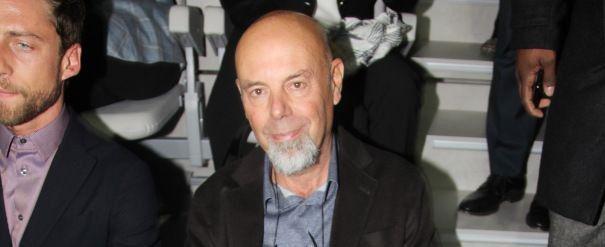Artnewspress : Luca Bigazzi is one of Italy’s most acclaimed award-winning directors of photography (DOP). His life has been dedicated entirely to the best of independent Italian cinema (not counting his work with Abbas Kiarostami). He has worked with directors such as Mario Martone, Gianni Amelio, Ciprì e Maresco, Silvio Soldini, Carlo Mazzacurati, Antonio Capuano, Leonardo Di Costanzo and Andrea Segre, and has been working with Paolo Sorrentino since “The Consequences of Love” in 2004. In this interview, edited by the photographer and film critic Alberto Spadafora, the Italian cinematographer talks about “The Great Beauty”, prizewinner of the Academy Award for Best Foreign Language Film of 2014. Although well-received abroad, the film hasn’t had the same reaction in Italy. In the book Bigazzi explains his work using the camera and light, and describes Sorrentino’s work methods and style. He also discusses the ethical and political issues in this harsh portrayal of Italy.

Luca Bigazzi, born in 1958 in Milan, Italy, is a world-renowned director of photography who has worked on some of the most important Italian films over the last three decades including The Great Beauty, which was directed by Paolo Sorrentino and won an Oscar for Best Foreign Language Film in 2014.
He has won many prestigious accolades and is also behind the highly popular HBO television series, The Young Pope, starring Jude Law.
A CONVERSATION WITH LUCA
Starting with your debut in the 1980s, your work has conveyed a clear metropolitan feel that is difficult to label within the Italian scene: what was your “school”? What connection do you have with Italian tradition?
I believe that my professional history is particularly anomalous. I did not go to any cinema school or “rise through the ranks”. At 23, I had the great fortune of collaborating with director Silvio Soldini as his director of photography: my passion for cinema, the voracity with which we went to the cinema and our carefree approach that allowed us to do something unexpected within the classic cinematography panorama of the Roman school.
The excellence of Made in Italy has always been appreciated on a global level and while design and Italian fashion continues to solidify its international prestige, the world of cinema has had some difficulty in leaving its mark. Barring several exceptions like The Great Beauty, what do you think the secret is to successfully “exporting” Italian cinema?
I am utterly convinced that Italy produces great films that present reality with an ability, one that is unparalleled on the European scene, to make the most out of often scarce resources. For example, Fuocoammare and Sacro Gra by Gianfranco Rosi – documentaries that have enjoyed great acclaim at international festivals thanks to their power to interpret reality.
Rewind demonstrates the creative process behind a Canali jacket: what do you think are the synergies between the “lingo” of tailoring and that of cinema?
Cinema is the art of collective creation. Films are conceived and guided by directors, who sustain the risks, the strain and the responsibility first-hand, but films are also the fruit of a collaboration between a number of professionals who all participate in the creation. The complex phases of manufacturing of the tailoring industry reminded me of the creative processes in cinema. Each single personal contribution leads to a united result with passion, competence and dedication that is intrinsically connected to the idea of collective creation. The collaboration between individual expertise for a common goal is one of the most fascinating human activities.
After the boom of technological innovation in moviemaking, in fashion and visual arts, there seems to be a return to craftsmanship and essentialism as demonstrated by various brands like Canali. How do you interpret this trend?
Simplicity is the ability to interpret reality in a surprising way are, in my opinion, the defining characteristics of Italian cinema. Craftsmanship, originality and inventiveness are distinctive features of our history, of our artistic heritage. The underestimation of our culture and the superficiality with which cultural works are considered today in Italy are an offense to these abilities. I believe that working with pride, passion and respect is the only antidote, which, fortunately, our country is able to produce in order to save itself.
























